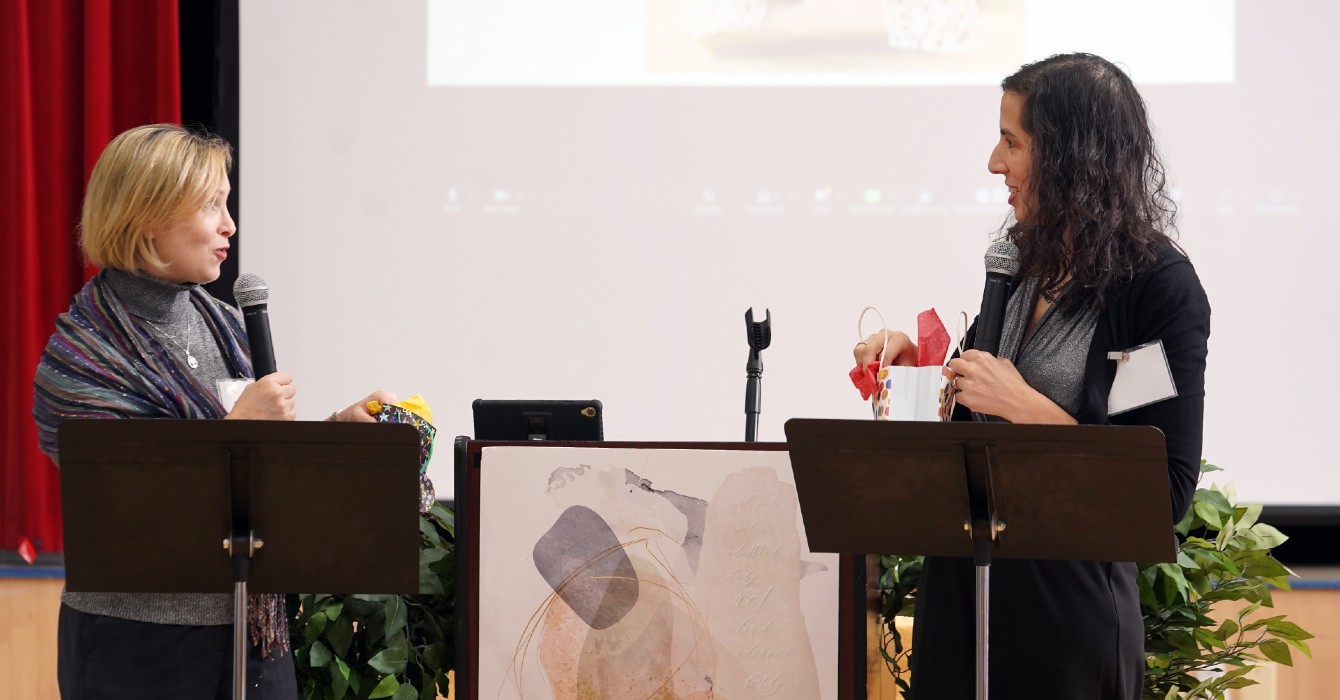I was sitting in the "langar," or dining hall, of the Golden Temple in Amritsar, India. Properly known as "Harmandir Sahib" (temple of God), the Golden Temple is the central shrine of the Sikh religion.
A monotheistic faith, established 500 years ago in the Punjab region of what are now India and Pakistan, Sikhism emphasizes human kinship and equality, and embodies those beliefs in its practice of hospitality. Virtually every Sikh "gurdwara" (house of worship) in India feeds a simple vegetarian meal daily to anyone who enters the langar. The Golden Temple's luncheon is one of the largest.
The day I visited, hundreds of guests sat in rows on the floor, including Hindus and Muslims, Sikhs like the Indian friend I was with and Christians like me. At the entrance to the dining hall, each of us had been given a plate, which we placed on the floor before us. Servers walked up and down the rows ladling lentil stew, rice and vegetables and passing baskets of hot chapati bread. All the food was given free of charge. No offering plate stood discreetly by the door or anywhere else.
After we were served, my host -- a friend from my undergraduate days at McGill University -- grew embarrassed.
"I'm sorry this isn't … well … nicer," he told me. "I'm sorry you have to eat lunch sitting on the floor."
My answer surprised him.
"Are you kidding?" I asked. "This is the closest I've ever come to Jesus' feeding of the 5,000. I can feel him with us."
My host didn't fully understand my response, but he accepted it with a nod. And we ate in happy silence.
Although that lunch took place 15 years ago, I've remembered it many times since -- especially when I hear of violence done in the name of religion or insults hurled at one set of believers by another. Unfortunately, there's been no shortage of either in the news recently. Every day brings new reports of incidents ranging from ill-informed comments to brutal attacks and even killings.
Indians have as much experience with religious violence as anyone. When I visited the Golden Temple, I saw a photo exhibit documenting the damage caused by Indian troops in 1984 when they stormed the sanctuary to evict Sikh separatists who had occupied it. Hundreds were killed, including pilgrims.
In retaliation, two of Prime Minister Indira Gandhi's Sikh bodyguards assassinated her. And in response to that murder, Hindu mobs killed thousands of Sikh citizens. The list of attacks and counterattacks has only grown in the decades since, and the threat of violence is ever-present in the Punjab region where Amritsar sits, between perennial enemies India and Pakistan.
But on that long-ago day in the langar, religious and political conflicts receded as our hosts followed God's command to feed their neighbors -- defined as whoever showed up. Sharing the noonday meal was a central part of our visit to the Golden Temple, a pilgrimage site since the 16th century.
First, we washed our hands and feet in the pool of holy water -- called "amrit," or nectar -- in which the temple stands. Then we entered the temple itself, where Sikh scriptures are read aloud 24 hours a day, seven days a week by readers working in shifts. Each new voice overlaps with the previous reader for a few lines so the community's praises of God will never be interrupted.
As my Sikh friend prayed, I stood to the side, listening to the beauty of the readers' rhythmic chant. Finally, we moved to the langar, joining the crowd of pilgrims, tourists, beggars and businesspeople.
That's when I moved in my mind from a hard floor near the India-Pakistan border to a hillside in Galilee. It was an unexpected side trip that hadn't been on my itinerary.
I had gone to the Golden Temple hoping to learn about Sikhism. And while I did gain a deeper understanding of that religion, my time on the langar floor gave me an even more important gift: a new lens through which to look at my own faith. Although my Sikh hosts had no intention of influencing my faith, their practice of hospitality has shaped my vision for Christian community ever since.
Hospitality is a fundamental Christian virtue. Jesus fed strangers and friends alike by the thousands. He also relied frequently on the hospitality of others, gaining a reputation for enjoying good food and drink in the company of wildly mixed groups of people.
Yet it's rare for churches to combine worship and hospitality as closely, and as generously, as the Golden Temple does. In North American churches, hospitality most often means welcoming visitors, and providing coffee and cookies for worshippers on Sundays. I enjoy those treats, and the conversations that take place over them. But the meal I enjoyed among Sikhs reminded me a lot more of Jesus.
I don't believe all religions are the same. All seek to teach reverence, compassion and self-awareness, but they vary widely in their conceptions of God, their understanding of the relationship between human beings and the divine, and their vision of the way to salvation.
As a Christian, I'm circumspect about participating in other faiths' worship services, because I don't want to appear to profess beliefs I don't hold. But I am often an appreciative observer, not just for the sake of better understanding my neighbors but also because other faiths have helped me better live my own.
Since my experience in Amritsar, whenever I've been tempted to wonder whether someone "really needs" the meal they're asking for, or will "appreciate" the support the church is offering them, I remember my visit to the langar.
I showed up, I was given a plate, and Sikhs filled it, free and with no questions asked, because feeding people is a fundamental part of what it means to be Sikh. It's a central part of what it means to be Christian, too. And Sikhs' faithfulness has helped me remember that.







